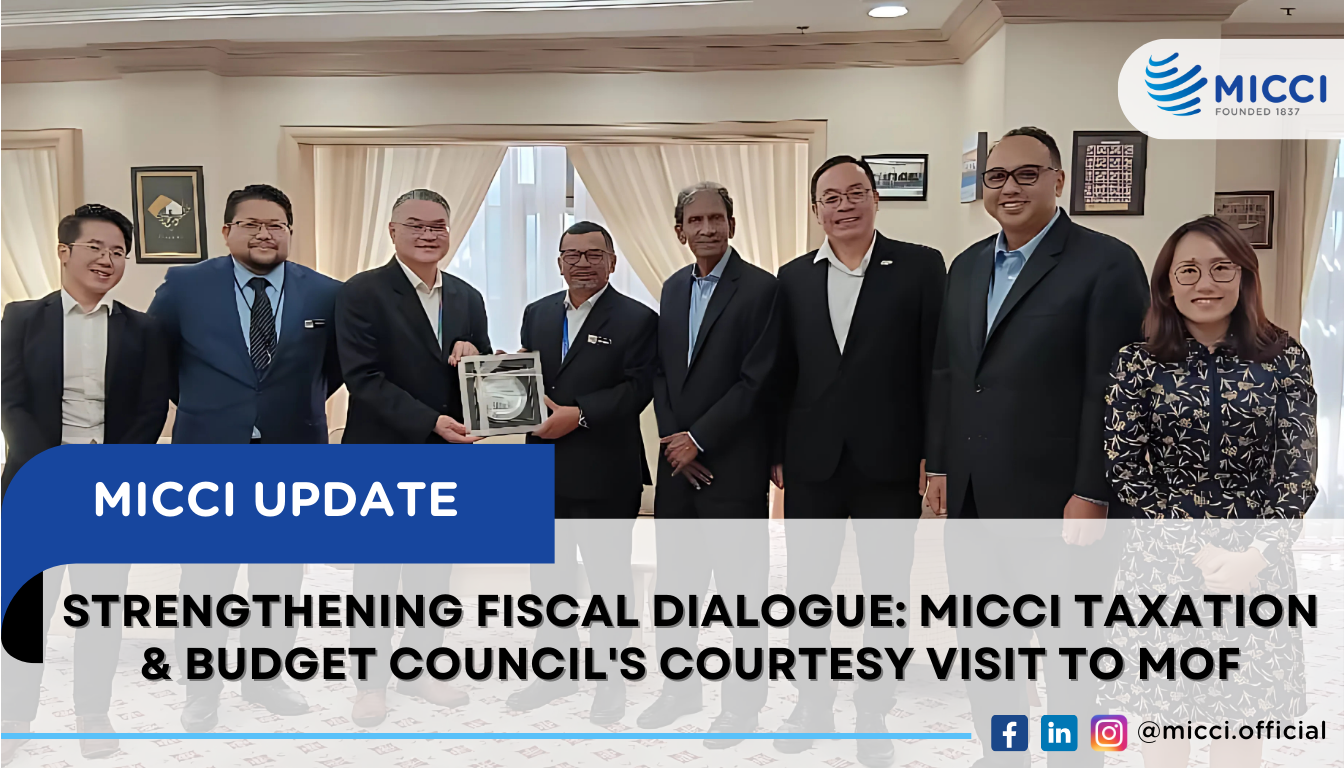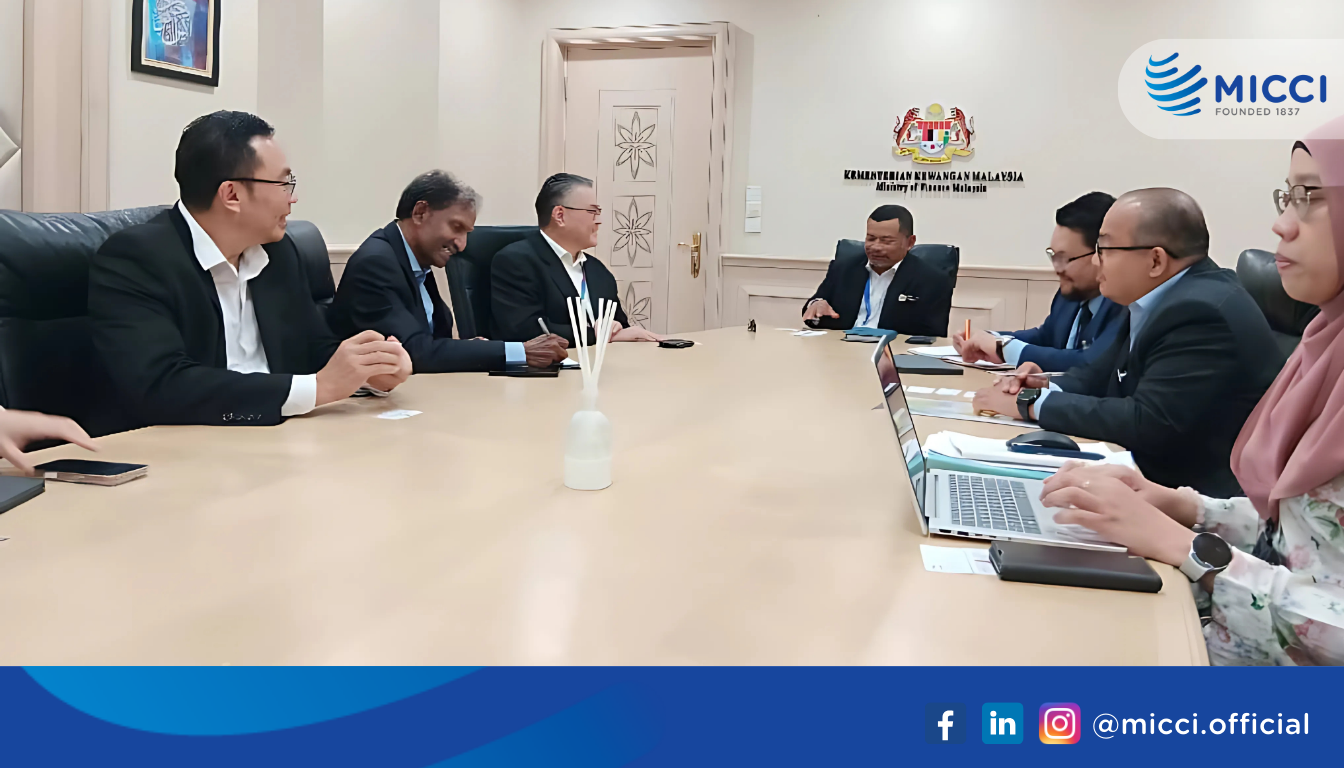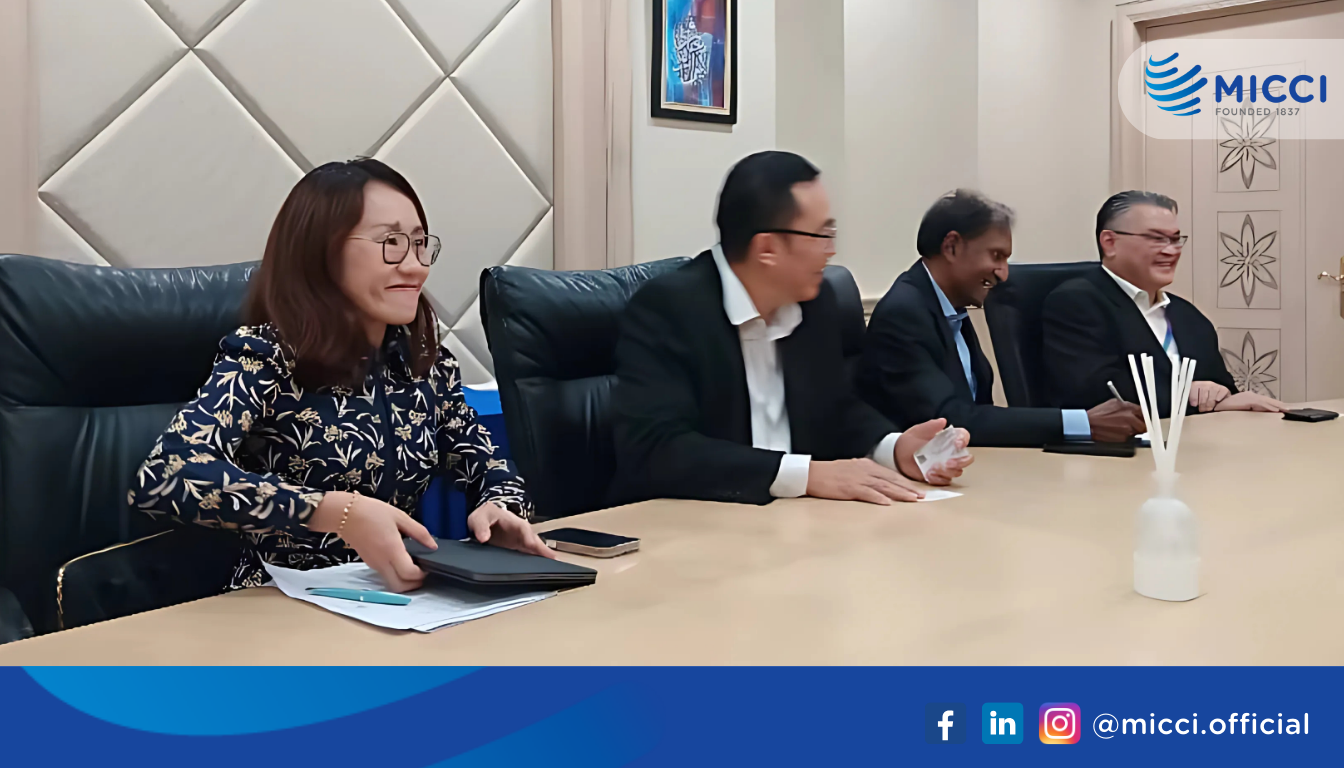Strengthening Fiscal Dialogue: MICCI Taxation & Budget Council's Courtesy Visit to MOF



 : By marcom@micci.com
: By marcom@micci.com  : Aug 21, 2025
: Aug 21, 2025On 7th July 2025, the Taxation & Budget Council of the Malaysian International Chamber of Commerce and Industry (MICCI), led by Co-Chairs Mr. Tai Lai Kok and Mr. Raja Kumaran, paid a courtesy visit to YBhg. Dato’ Zamzuri bin Abdul Aziz, Deputy Secretary General of Treasury (Policy) at the Ministry of Finance (MOF). The delegation included Mr. Khairul Anwar Abdul Gahani (Coca-Cola), Ms. Julie Huang (IPC Malaysia), and Mr. Lee Han Ling, Executive Director of MICCI. The meeting was thoughtfully coordinated by Mr. Wayne Shu Guo Qui, Advocacy Manager of MICCI.
The engagement served as a meaningful platform to strengthen collaboration between the public and private sectors and to address key taxation matters impacting the business community. MICCI expressed its appreciation to MOF for the open and constructive dialogue and reaffirmed its commitment to working closely with the Ministry to support the development of effective, transparent, and inclusive fiscal policies.
During the meeting, MICCI raised several critical issues, including the need for updated guidance on stampable documents, the compliance challenges faced by SMEs, and the proposal to implement a bulk e-Stamping mechanism to improve efficiency. The Council also emphasized the importance of clearer guidelines for employment-related documents and recommended exemptions for internship letters to support youth employment initiatives.
Additional proposals included a waiver for stamp duty on intern hiring, clarification on the status of bonus and confirmation letters, revision of the RM1,500 stamp duty threshold to better reflect current economic conditions, extension of the stamping deadline to 60–90 days, and the provision of a standard 2–3 month lead time for the implementation of new tax measures. These recommendations aim to ease administrative burdens, enhance regulatory clarity, and allow businesses to plan more effectively within a dynamic economic landscape.
